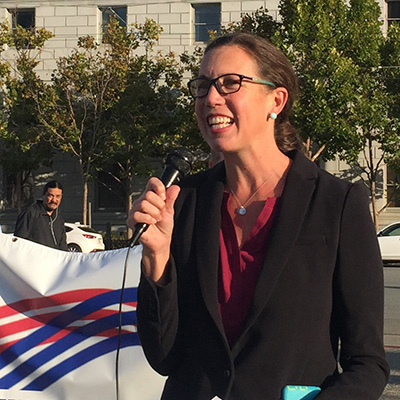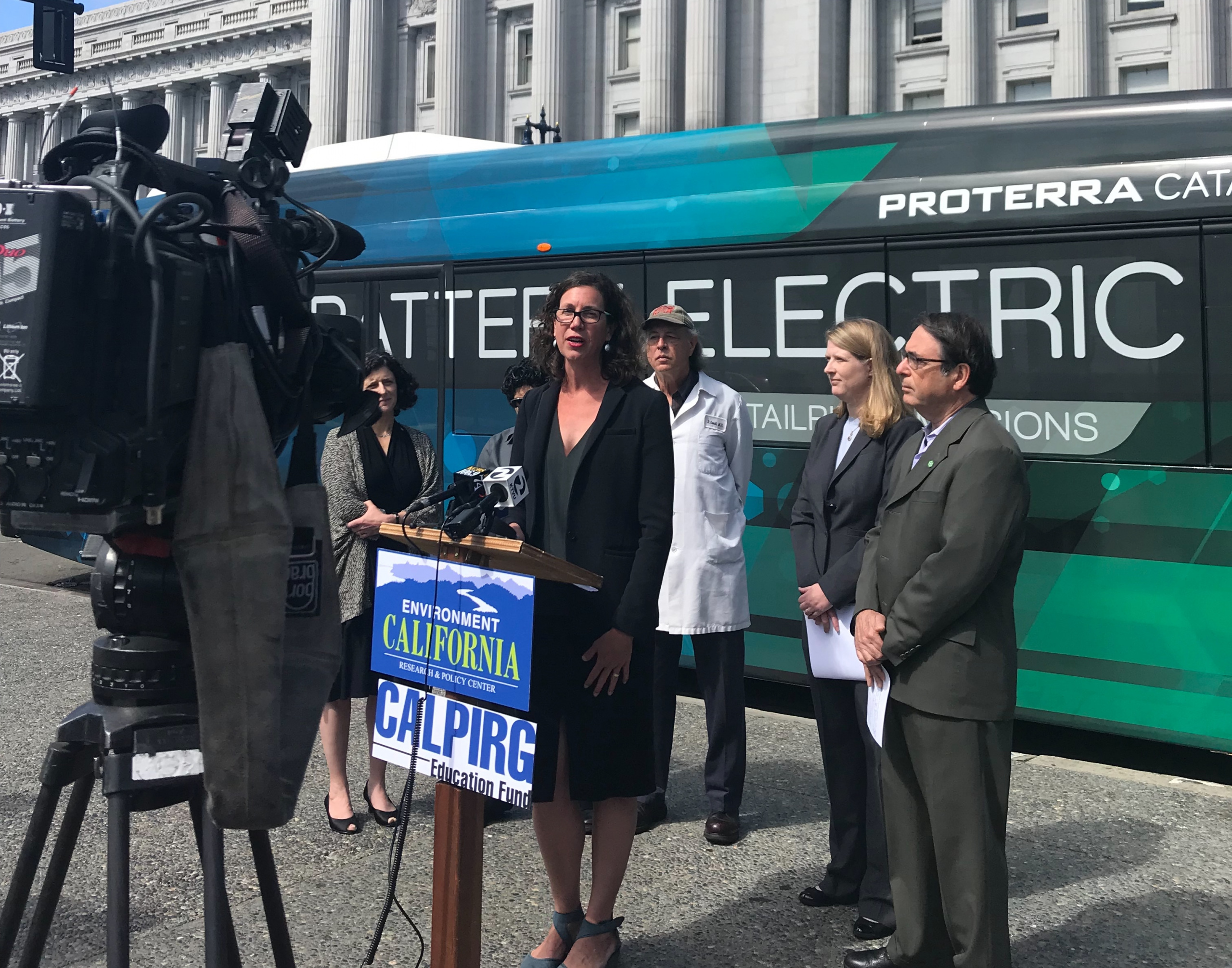
A Commitment to All-Electric Buses is the Next Step for California to Reduce Air Pollution and Fight Climate Change
Today I'm at the California Air Resources Board to testify in favor of 100% clean, zero-emission transit buses. Here's why it matters.
As California reels from a devastating wildfire season and floodwaters in the Carolinas start to recede, it is clear more than ever that the world needs leadership in the fight against global warming. For decades, California has delivered – pushing for stronger vehicle emissions standards, putting the state on a path to 100% fossil fuel free electricity, and most recently, hosting the first Global Climate Action Summit– convening thousands of people to drive more action on climate change.
Now, the California Air Resources Board, a long-time environmental leader, has the chance to take another big step: to transition all of the state’s transit buses to all-electric. This commitment would improve air quality for millions of Californians and position the Golden State once again at the forefront of climate action.
Buses are the workhorse of our transportation system: they carry many of California’s 6 million public school students to and from school each day and they carry millions more people around our cities. Buses help tackle climate change by reducing the number of individual cars on the roads. They make our communities more livable and provide mobility for people of all ages and abilities.
But most of California’s buses burn fossil fuels like diesel and natural gas that put the health of our children, communities and the climate at risk. Numerous studies have shown that inhaling diesel exhaust can cause respiratory diseases and worsen existing conditions like asthma. Diesel exhaust is internationally recognized as a carcinogen and studies have linked exposure to diesel soot with higher rates of death. And, the negative effects of diesel pollution are especially pronounced in children.
The good news is that all-electric buses are here, and they’re cleaner, healthier and often cheaper for transit agencies and school districts to run in the long-term.
Electric transit buses are efficient, getting the equivalent of about 17 miles per diesel gallon, meaning they’re about four times more efficient than their fossil fuel counterparts. Because they produce no tailpipe emissions, they make our communities healthier. The Chicago Transit Authority estimates that each of their electric buses saves $55,000 every year in avoided healthcare expenses.
They also help to fight climate change.Replacing all of America’s school buses with electric buses could avoid an average of 5.3 million tons of greenhouse gas emissions each year, and replacing all of the diesel-powered transit buses in the United States could save another 2 million tons of greenhouse gas emissions.
And all-electric buses don’t have to break the bank. All-electric buses often cost less to operate than diesel or natural gas buses, since they are more efficient, they have fewer parts, and their braking systems last longer. For instance, the California Air Resources Board estimates an electric bus can save nearly half a million dollars in fuel and maintenance costs over the bus’s lifetime compared to a diesel bus.
It seems like nearly every day another municipality embraces the benefits of electric buses, buying buses for their fleet or making bold commitments to transition all of their buses to electric. For instance, the cities of San Francisco and Los Angeles (in fact, all of LA County) have commitments to switch to all electric buses. From Redding to Napa to San Diego, cities across the state are eager to start operating electric buses.
Every major commitment to electric buses helps bring us closer to the day when clean electric transportation is the norm rather than the exception. As more electric buses are procured, the price of technology falls and we gain more experience with operating them, spurring technological improvement and innovation.
Time and again, California has been at the forefront of revolutions in transportation and clean energy. By committing to all-electric buses, CARB can build on its track record of innovation and environmental stewardship, not only cleaning up California’s air, but also setting an example for cities and states around the country to follow.

Authors
Emily Rusch
Vice President and Senior Director of State Offices, The Public Interest Network
Emily is the senior director for state organizations for The Public Interest Network. She works nationwide with the state group directors for PIRG and Environment America to help them build stronger organizations and achieve greater success. Emily was the executive director for CALPIRG from 2009-2021, overseeing a myriad of CALPIRG campaigns to protect public health, protect consumers in the marketplace, and promote a robust democracy. Emily works in our Oakland, California, office, and loves camping, hiking, gardening and cooking with her family.